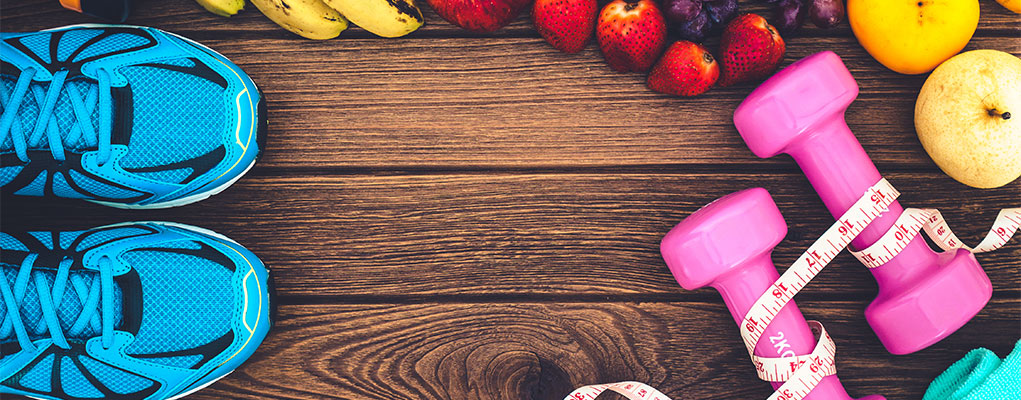
5 Tips to Lose Weight in 2019
December 31, 2018
When a new year starts, it’s human nature to reflect on what a year you just had. Most of the time reflection brings awareness of the habits you have and what you would like to change.
New Year’s resolutions generally include losing weight, improving nutrition, getting more sleep and overall becoming healthier. Thinking about all these big changes and commitments may overwhelm you but it doesn’t have to. Incorporating small, easy changes here and there add up. So instead of joining an intense boot camp, changing your whole diet and attempting to catch up on sleep all at once, here are some things you can do to satisfy your healthy New Year’s resolutions without overwhelming yourself.
If your New Year’s Resolution is to lose weight
1. Taking the stairs whenever you can
- Taking the stairs will add to the 30 minutes of daily physical activity everyone should, but probably doesn’t, get.
- Climbing will also contribute to maintaining strong bones, muscles and joints while increasing circulation.
- If you are shopping, carrying bags up and down the stairs makes a great workout.
- Most of the time the stairs will be less crowded, plus you get to avoid the awkward elevator music or even worse, a silence with a crowd of random people.
2. Parking further away in parking lots
- Attempting to find a close parking spot most likely involves doing a few laps around the lot first. Parking in the back will save you time and protect your car from other drivers and door dings.
- Adding these few extra steps will contribute to that goal of 30 minutes of exercise per day, and since walking is a perfect way to increase your energy, you’ll get an extra boost to get you through the rest of your day.
- Chances are, you might forget where you park but this can only improve your overall memory too.
3. Don’t skip breakfast
While you sleep, you are essentially fasting because your body is running on a reserve, slowing down your metabolism. It’s called breakfast for a reason; you are breaking the fast. Also, digesting, processing and absorbing the nutrients from food entails burning energy. Eating a nutritious breakfast filled with protein and fiber will:
- Help control your appetite, keeping you feeling full longer.
- Replenish your reserves and jumpstart your metabolism
- Get you out of that morning “sluggish” feel by providing new fuel for your body and brain resulting in better focus, attention and memory.
4. Snacking instead of eating 3 full meals
Instead of sticking to eating 3 meals a day try small, healthy snacking throughout the day. Eating large meals slows down your metabolism and throws off your blood sugar balance.
- Digesting uses a lot of energy, so eating snacks throughout your day stimulates your metabolism, burning more energy than big meals while reducing the chances of overeating.
- For this to be effective, the meals you do eat have to be proportioned and the snacks you include between meals should be small and nutritious such as vegetables, fruit, nuts, whole grains, avocados, peanut butter and tea (just for a few examples).
5. Paying attention to Nutrition Labels
Nutrition labels are required on every food product package in the U.S. because they provide a lot of valuable, yet overlooked, information about what you are putting into your body.
- Serving size at the top of the label not only puts proportion into perspective but also tells you what is in each serving.
- If you are trying to lose weight, you should burn more calories than you consume. However, calories and calories from fat are totally different. While you need calories for energy, what you don’t burn is stored, so make sure the calories from fat are relatively low.
- Not everyone knows the difference between the various types of fat. Unsaturated fat is considered “good fat” because it is more of an oil therefore, it is heart healthy (like fish oil). Saturated fat is considered “bad fat” because it is solid and too much of it will raise your LDL cholesterol levels. Trans fat is the worst fat you could consume. It increases the shelf life of a food product, therefore foods with a lot of trans fat are extremely processed and increase LDL cholesterol levels.
- Carbohydrates include both sugar and fiber. If the amount of sugar is relatively low that means you are consuming complex carbohydrates, which are good for you and leave you feeling full longer.
- The less sodium and sugar the better.
- Protein, vitamins and minerals are always good.
Incorporate a few of these tips into your routine and you’ll be on your way to achieving your weight loss goals.


